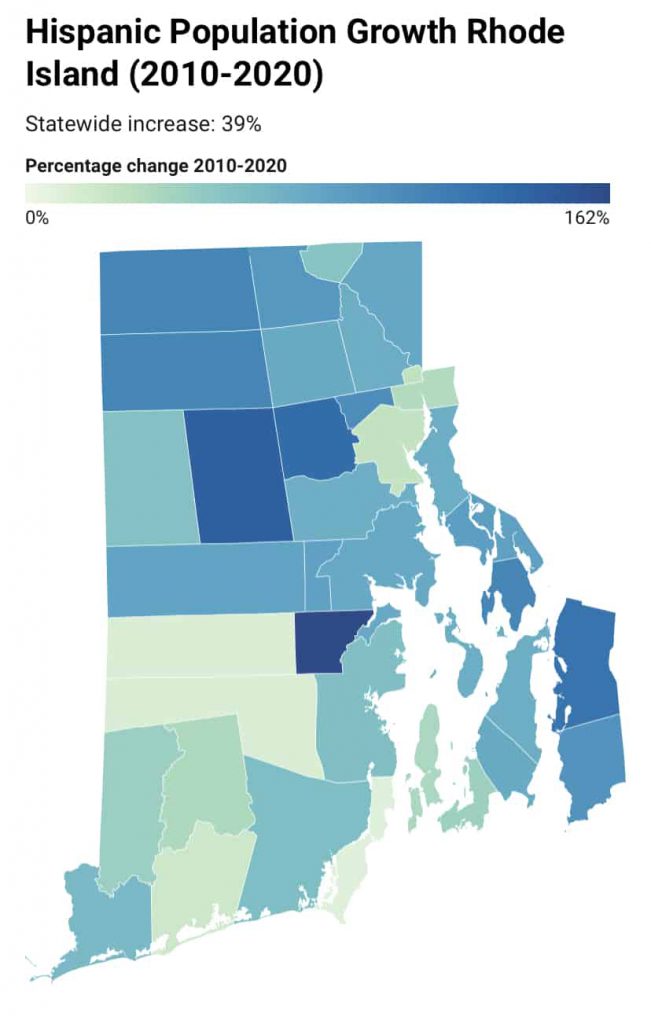Hispanics-Latinos make up 62.1 million of the U.S. population, a 23-percent increase from 2010 to 2020, the Census Bureau reported. The group accounted for more than 50-percent of the country’s growth, rising to nearly 20-percent of the population.
Hispanics-Latinos are more than 180,000 strong, making up nearly 17-percent of Rhode Island’s total population; twelfth highest percentage among the 50 states and Washington, D.C.
The number of residents is increasing in every city and town, with the highest concentration living in Providence County, where the group represents just over 24-percent.
Hispanics-Latinos are growing in numbers in the Ocean State, and they’re young. “We’re a graying population with a lot of people going into retirement, especially in the trades,” said Mario Bueno, executive director of Progreso Latino referring to the group’s impact on the state’s workforce.

Encouraged by the Census findings advocates are pushing to ensure that Hispanics-Latinos are an integral part of the state’s redistricting process. “We are here, we matter, and we make up a big part of Rhode Island,” said Natalie Almeida, spokesperson for the Latino Policy Institute at Roger Williams University.
States will now use the more detailed census data to redraw congressional and legislative districts, A politically-charged process, remapping is already generating controversy in Rhode Island. In its second meeting, the state’s 18-member redistricting commission tackled concerns over racial data.
The Census asks two questions related to race: Are you Hispanic? and What is your race? The Census does not consider “Hispanic” to be a race. Complicating things is the fact that people have the option to check off more than one box when identifying themselves by race. This has the odd effect of allowing tallies that may exceed 100% because people of two races will be counted once in two separate categories, reported UPRISE RI.
The special commission will draft new General Assembly and congressional districts, using the latest census figures to make recommendations to the full Assembly in January.
The new voting district maps will shape elections for the next ten years. “The Latino vote has proved to be critical in every Democratic primary (in Rhode Island) since 2002,” said Nellie Margarita Gorbea, Rhode Island’s Secretary of State. “It is a vote that has really helped make or break candidacies.”
Gorbea talked about the importance of the Latino vote to her run for governor in an interview with La Politica Online. She made history in 2016, successfully becoming Secretary of State; the first Hispanic-Latino elected to statewide office in all of New England. She’s hoping to make history again next year by becoming the first Puerto Rican governor in the United States.
“I have seen groups of kids come to the State House, and every now and then they’re Hispanic kids and I see them so excited about the fact that one of their elected officials is somebody that they can relate to. And it’s that sense of awe and wonder that the kids bring that’s part of the reason I’m running,” she said. “We as Latinos have a role to play and be part of the solutions that need to be developed.”




